On 18 June 2021, England and Scotland will play each other at Wembley in a Euro 2020 Group D fixture. While the two national sides last met in 2017 during the World Cup 2018 qualification campaign this will be the first time they have played each other since the UK officially left the European Union. Always a symbolic fixture, the meeting between the two against the backdrop of Brexit and the Scottish Nationalists’ push for a second referendum on Scottish independence adds even more layers of cultural and political significance to the game. It is somewhat of an irony then that England are playing Scotland in a European football tournament whose purpose, according to UEFA, is to bring people together by combining rivalry with celebration and independence with togetherness.
England versus Scotland is the world’s oldest international football match. The two first played each other in a series of five unofficial games at The Oval cricket ground between 1870 and 1872. The first match officially recognised as an international game took place in November 1872. Since then, England and Scotland have played each other 113 times with England winning 48, Scotland 41 and 24 games being drawn. Since 1980 England have won 11 of the 17 fixtures, Scotland 3 and 3 more drawn. These results reflect the struggles that Scottish football has encountered since their 2-1 defeat of England at Wembley in 1977, a game remembered for the post-match pitch invasion by the ‘Tartan Army’ of Scottish fans.
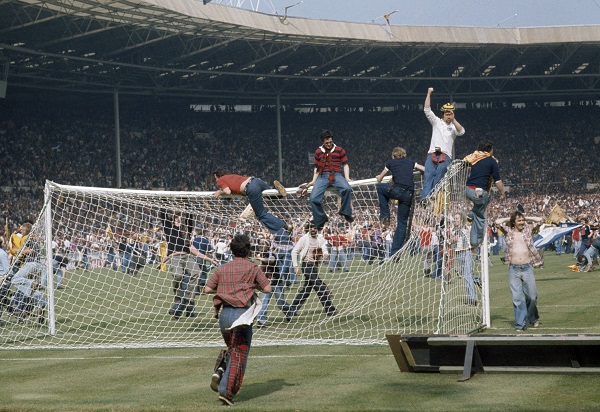 Scotland fans invading the pitch at Wembley, 1977
Scotland fans invading the pitch at Wembley, 1977
Football and national identity in the United Kingdom
For Scottish supporters, England are the ‘Auld Enemy’, an expression that possesses its routes in the historical rivalry between the two countries...Football in the United Kingdom is organised separately by each of the Home Nations. Consequently, it can function as a theatre for the expression of a distinctive ‘we-image’, a collective identity that people in each of the four countries can incorporate into their own ‘self-image’. For Scottish supporters, England are the ‘Auld Enemy’, and expression that possesses its roots in the historical rivalry between the two countries and contributes to both an anti-English and non-English element of support for the Scottish team. Games played at Wembley heighten the significance for many Scottish supporters given the perception that the political and economic core of the United Kingdom is located in London and the South-East. With the restrictions on attendance required by the COVID-19 pandemic, and only a few thousand tickets available for Scottish supporters, it will be a smaller Tartan Army that will have to make its voice heard in the capital.
For English supporters it is matches against Germany and Argentina, and not Scotland, that tend to raise the rhetoric of historical rivalry. The support that follows the England team has also demonstrated some interesting developments since England won the World Cup in 1966. Images from the 1966 final show Wembley adorned with Union Jacks and signify the extent to which Englishness was arguably synonymous with Britishness at the time. Move forward thirty years to Euro 1996 and the Union Jacks have been replaced by the flag of St. George, a trend that has continued since then. This development has been interpreted as indicating the emergence of a stronger more visible English identity, a we-image which is distinctively English and not British. This could be associated with the process of devolving more political power and control to Scotland, Wales and Northern Ireland without the corresponding creation of an English Parliament or Assembly. Perhaps in this respect sport, and football especially, has created an outlet for the expression of an English identity generated by the peculiarities of the United Kingdom’s political constitution?
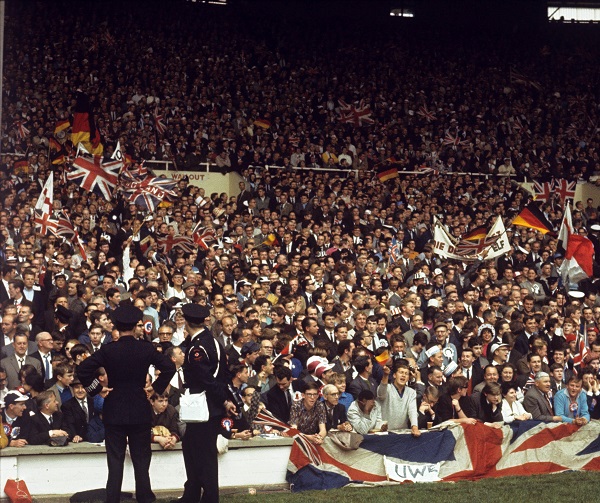 England fans at the 1966 World Cup
England fans at the 1966 World Cup
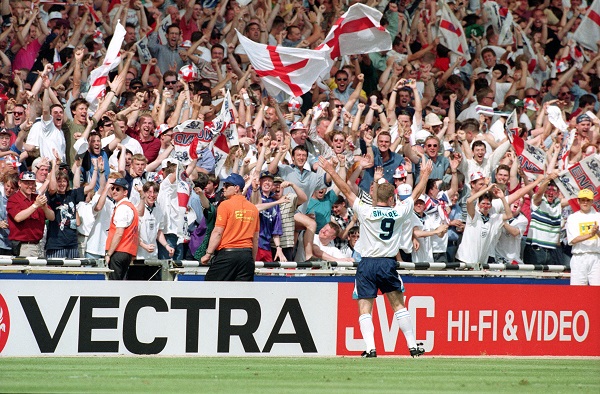 England fans at Euro 1996
England fans at Euro 1996
The shadow of Brexit
It will therefore be interesting to observe how the media covers the game and the extent to which a ‘Brexit’ and ‘Scottish independence’ narrative is present.Euro 2020, and the England v Scotland game, also takes place against the backdrop of the fissures in the union of the United Kingdom that have been opened up as a consequence of the Brexit vote. Not only does Brexit mean re-making relationships with continental Europe, but it has also reignited calls for a second referendum on Scottish independence and raised tensions in Northern Ireland. 62% of the Scottish electorate voted to remain in the European Union compared to 46.6% of the English electorate. Brexit, as the Scottish Nationalists continue to point out, was forced onto the Scottish people against their will, and raises further questions about the extent to which the Scottish people can determine and influence their own future. It will therefore be interesting to observe how the media cover the game and the extent to which a ‘Brexit’ and ‘Scottish independence’ narrative is present. Certainly, there is the scope that this particular game is somehow different to those that have taken place in the past. A sense that the game is being played not just during a global pandemic but at a significant time in the political history of the United Kingdom.
There is also one other final point of interest to watch out for. In the 113 times England and Scotland have played each other only three games have been goal-less. Goals, for either team it might seem, are inevitable.
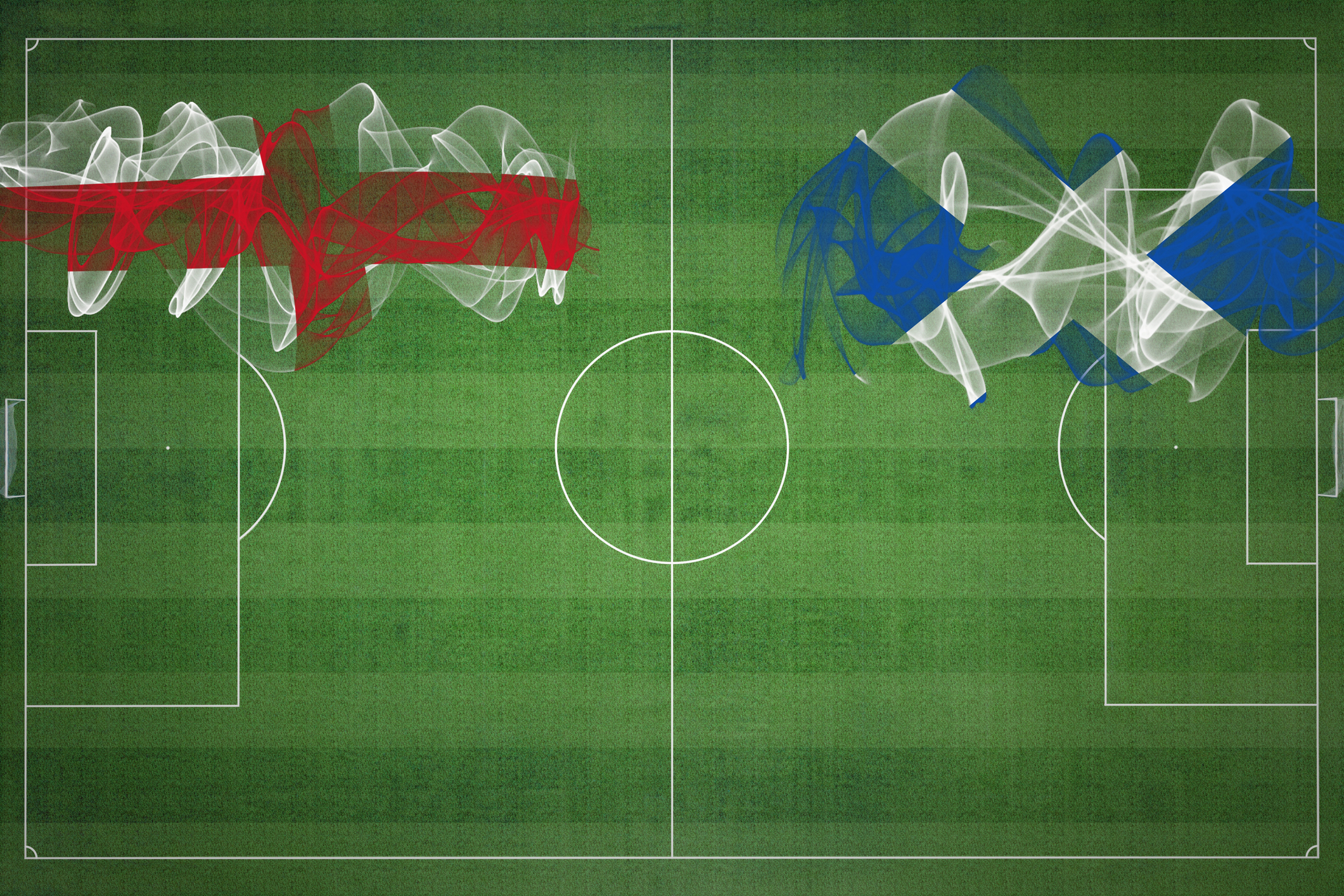
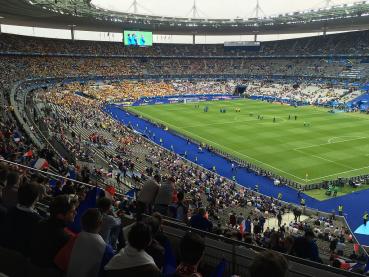
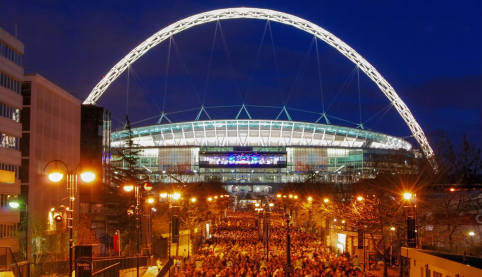


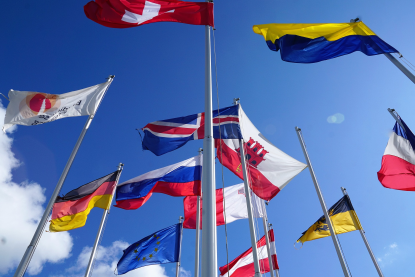

Rate and Review
Rate this article
Review this article
Log into OpenLearn to leave reviews and join in the conversation.
Article reviews